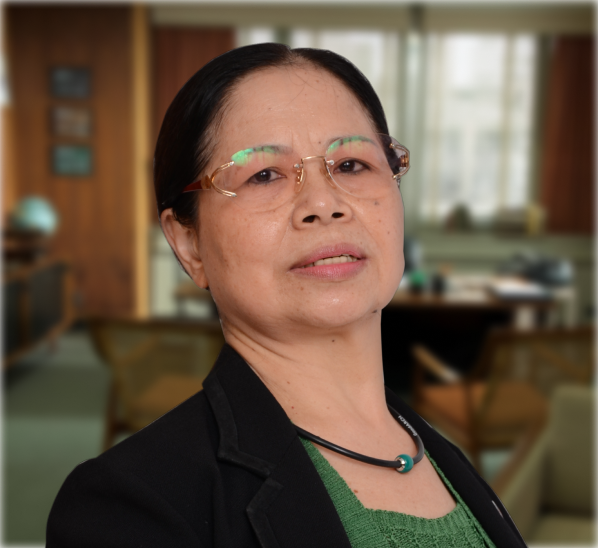The gravity and scale of Asia’s social problems today are such that they demand large, complex, and long-term programs of assistance and sophisticated technologies of change. And yet, on occasion we are reminded that in a most elemental way, one can begin to change the world through seemingly ordinary acts of empathy and magnanimity.
Let us then celebrate the extraordinary ordinariness of CHEN SHU-JIU. The child of vegetable vendors in the city of Taitung, southeastern Taiwan, CHEN knew personally the familiar miseries of the poor. When her mother fell gravely ill, the thirteen-year old CHEN saw her father desperately asking neighbors for money so her mother could be treated in a hospital. What he managed to scrape together came too late to save her mother’s life. As the eldest daughter, she had to stop schooling to help her father run their small vegetable stall in the market. Five years later, one of her brothers contracted a chronic disease that drained the small family savings. The school she attended started a fund drive to help the family. The aid was not enough to save her brother’s life, but the memory of that kindness stayed with her. She knew poverty and despair, but witnessed kindness as well, simple truths that have guided the rest of her life.
Today, two decades after her father died, CHEN continues to sell vegetables from a stall in the central market in Taitung. What is astounding is that over these years, just from her daily earnings as a vegetable vendor, she has personally given away over seven million Taiwanese dollars (US$320,000) to various charities, particularly for the care and education of children. Recipients of her generosity include a Buddhist monastery, to help it fund a school; a non-profit Christian organization that rescues children-at-risk and provides them with food, shelter, clothing, medical care, and education; a Red Cross Society fund for helping families during disasters and other emergencies; the elementary school where she used to study, to build a fully-equipped library; and an emergency relief fund that enables students to continue their studies if their parents fall sick or are unable to work.
A devout Buddhist, CHEN works seventeen hours a day. She lives frugally, and is content with the simplest of necessities: afraid she might get too comfortable to wake up early for work, she sleeps on the floor; a vegetarian, she eats only two meals a day. Despite the recent recognition international media has given to her personal philanthropy, she remains entirely unselfconscious about what she has accomplished. Indifferent to public honors, she resists having a foundation set up in her name, and refuses to receive donations from others, saying she prefers to give away money that she has earned herself.
When asked about what she has done, CHEN simply says: “Money serves its purpose only when it is used for those who need it.†She is impatient with fuss that keeps her away from selling vegetables; she affirms: “My philosophy in life is simple. If doing something makes you worried, then it must be a wrong thing. If it makes you happy, then you must have done the right thing. I feel happy whenever I could help other people.â€
In electing CHEN SHU-JIU to receive the 2012 Ramon Magsaysay Award, the board of trustees recognizes the pure altruism of her giving, which reflects a deep, consistent, quiet compassion, and has transformed the lives of the numerous Taiwanese she has unselfishly helped.
It never once crossed my mind that I would one day be standing here accepting an award from your esteemed foundation. Similarly, I have never really given much thought to what we as individuals can do for the world. All I know is that people should work hard at what they do.
I became a vegetable vendor at a market soon after leaving elementary school, so I’ve been selling vegetables for nearly fifty years now. I rarely take days off and I have hardly ever had the chance to leave Taitung, not to mention go abroad, so my knowledge of the world is quite limited. And while I am good at selling vegetables, this doesn’t qualify me to speak any great truths about the way the world works. I do know, though, that I am receiving this award today because of the donations I make. Yet I have never considered myself a great person-I am just an ordinary person, a humble vegetable vendor. I simply do what I can, to the best of my ability. There is nothing extraordinary about that. In fact, there are lots of well-known people who have donated far more than I have. I suppose, though, that being willing to help can make a difference, no matter how little we can give. And everyone has got something to offer. What makes a difference is whether or not you actually put that into action.
I have always thought that making donations was my personal business, and I never intended to let people find out about it. Helping others gives me a sense of pure satisfaction and makes me feel extremely happy. Now, because of all the media attention, all sorts of people, including those I don’t know, may greet me and sometimes offer me their kind encouragement when I am at the market or out and about. To be honest, I get quite embarrassed by it all, and sometimes I just don’t really know what to say or how to respond. But this doesn’t mean I am not grateful for their support, because I really am. Likewise, I would like to thank everyone at the foundation for presenting me with this award. I wish all of you the best of health and happiness.

